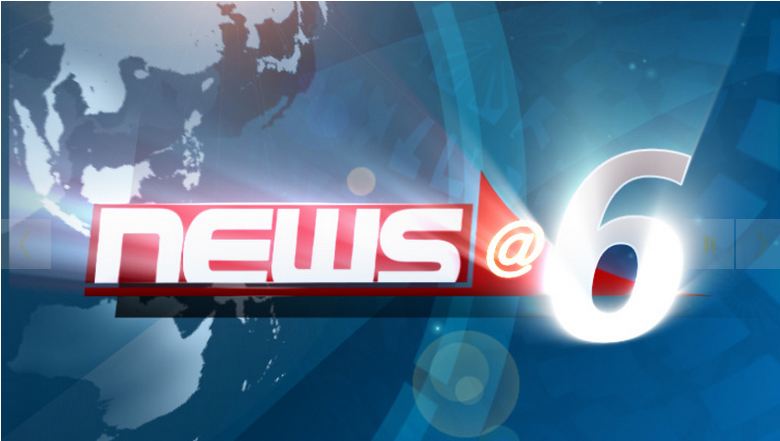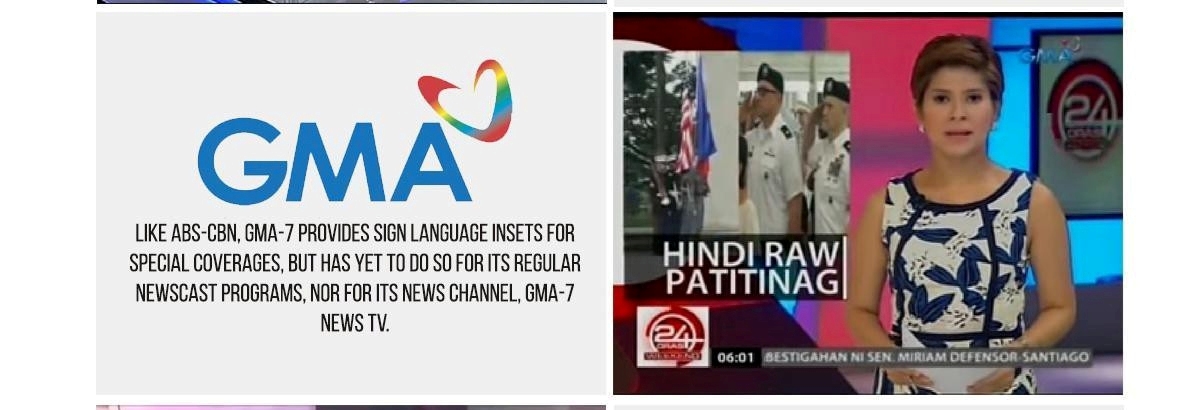![]() By RONN BAUTISTA and KRIXIA SUBINGSUBING
By RONN BAUTISTA and KRIXIA SUBINGSUBING
(Conclusion)
IN the Philippines, sign language insets in free-to-air television channels are almost unheard of.
Out of Metro Manila’s 18 channels, only one features a sign language interpreter alongside its news programs. Citing logistical and aesthetic concerns, most private TV networks hesitate to include insets in their newscasts despite Republic Act 7277 or the Magna Carta for Persons with Disabilities (PWDs) encouraging them to do so.
“Because (private) networks still do not perceive the need (to cater to deaf audiences), the government’s own TV station should lead as an example to the industry,” said Randy Calsena, officer of the National Council for Disability Affairs’ subcommittee on laws and policymaking.
However, state-owned People’s Television (PTV-4) has also failed to implement its operator’s own laws. From declining government subsidy to unstable revenues, budget woes hinder PTV-4 from making its broadcasts fully accessible to the Deaf community as well.
Since its establishment during the Marcos regime, the PTV-4 charter requires the station to “maintain a broadcast industry system that serves as a vital link for participative democracy and effective government information dissemination through developmental communication.”
As a state-owned station, PTV-4 is bound by both the country’s Magna Carta and the United Nations Convention on the Rights of PWDs (UNCRPD) to ensure information is usable and accessible to Deaf persons.
Section 9 of the UNCRPWD declares that state parties “shall take appropriate measures to ensure access (for PWDs), on an equal basis with others, to information and communications.”
“Sign language insets are important because Deaf persons cannot access information in a verbal manner. PWDs have as much right to that as everyone else,” Calsena said.
Yet, since the 1990s, PTV-4 has never included sign language insets during any of its programs except for one instance during the preparation of President Benigno Aquino III’s State of the Nation Address in 2012.
“That was part of the former news division head’s conceptualization of news programs, but it was never followed up because he had to leave,” PTV-4 News Division Head Ramon Nunez said in Filipino.
Now that Nunez holds that position, the news head said he has been consulting his department about the feasibility of regular sign language insets. During informal consultations, one of his colleagues raised concern over the funding for such an addition to the newsroom.
When PTV-4 hired an interpreter in 2012, it cost the station P2,500. To make it a regular addition to PTV-4’s broadcasts in line with the Magna Carta for PWDs, Nunez said the network would have to hire at least two interpreters a day.
“To cut costs, we would hire interpreters as contractuals with no benefits like GSIS and PAG-IBIG (coverage),” Nunez said in Filipino.
Although the station management will decide the length of contract and final salaries of each interpreter, entry-level contractual employees in PTV-4 receive around P12,000 monthly.
“(Adding regular sign language insets) requires hiring new employees which entails additional budget,” Nunez said.
On top of the subsidy it receives from the national government, Section 19 of the PTV-4 charter states that “the Network (may) generate funds from advertising and airtime sales for its operations and capital expenditure program.”
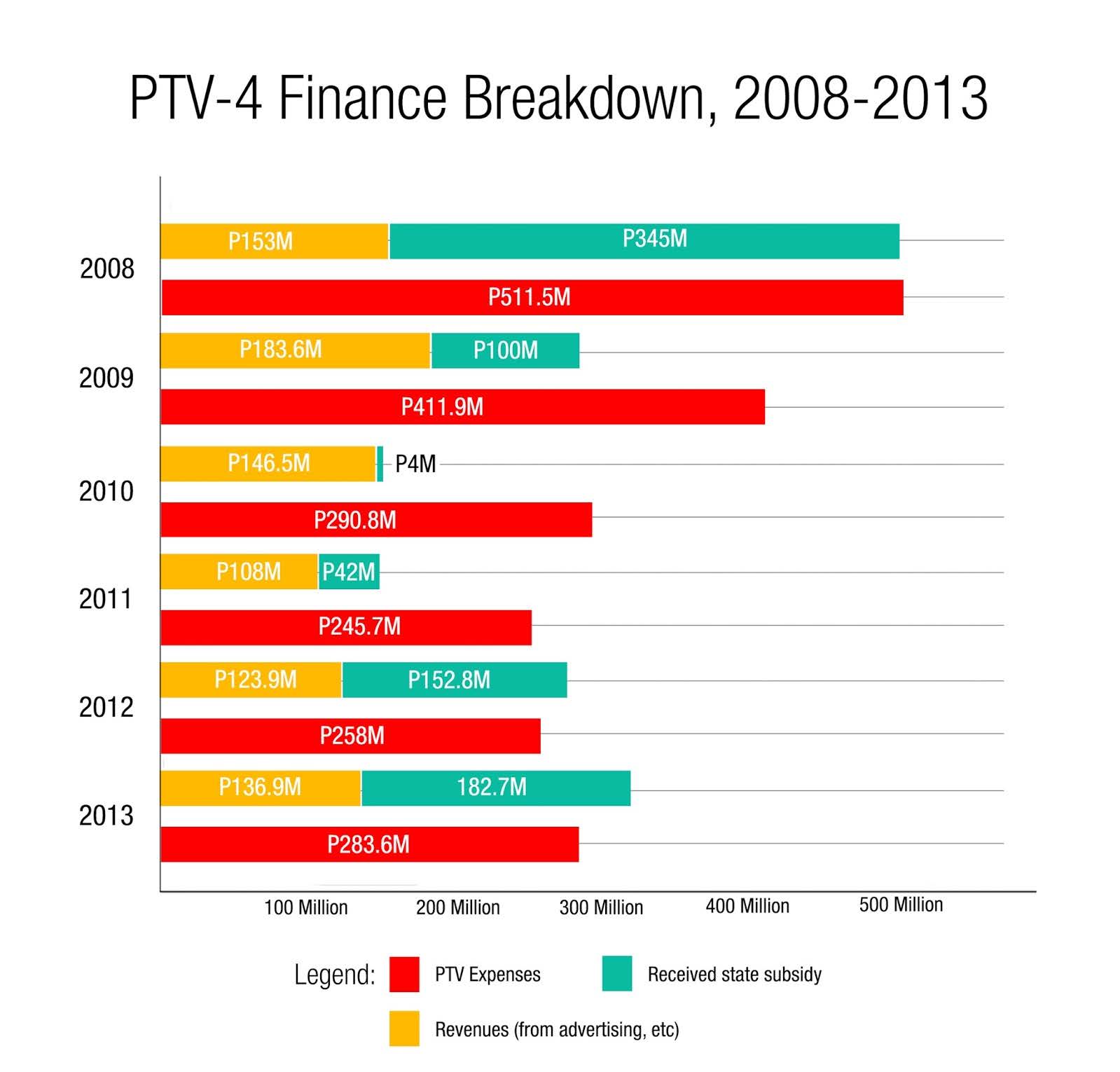
From 2011 onward, the station’s sales revenue can only fund as much as half of PTV-4’s annual expenses
Excluding funding from the national government, PTV-4 has been incurring hundreds of millions of pesos in losses from 2008 to 2013.
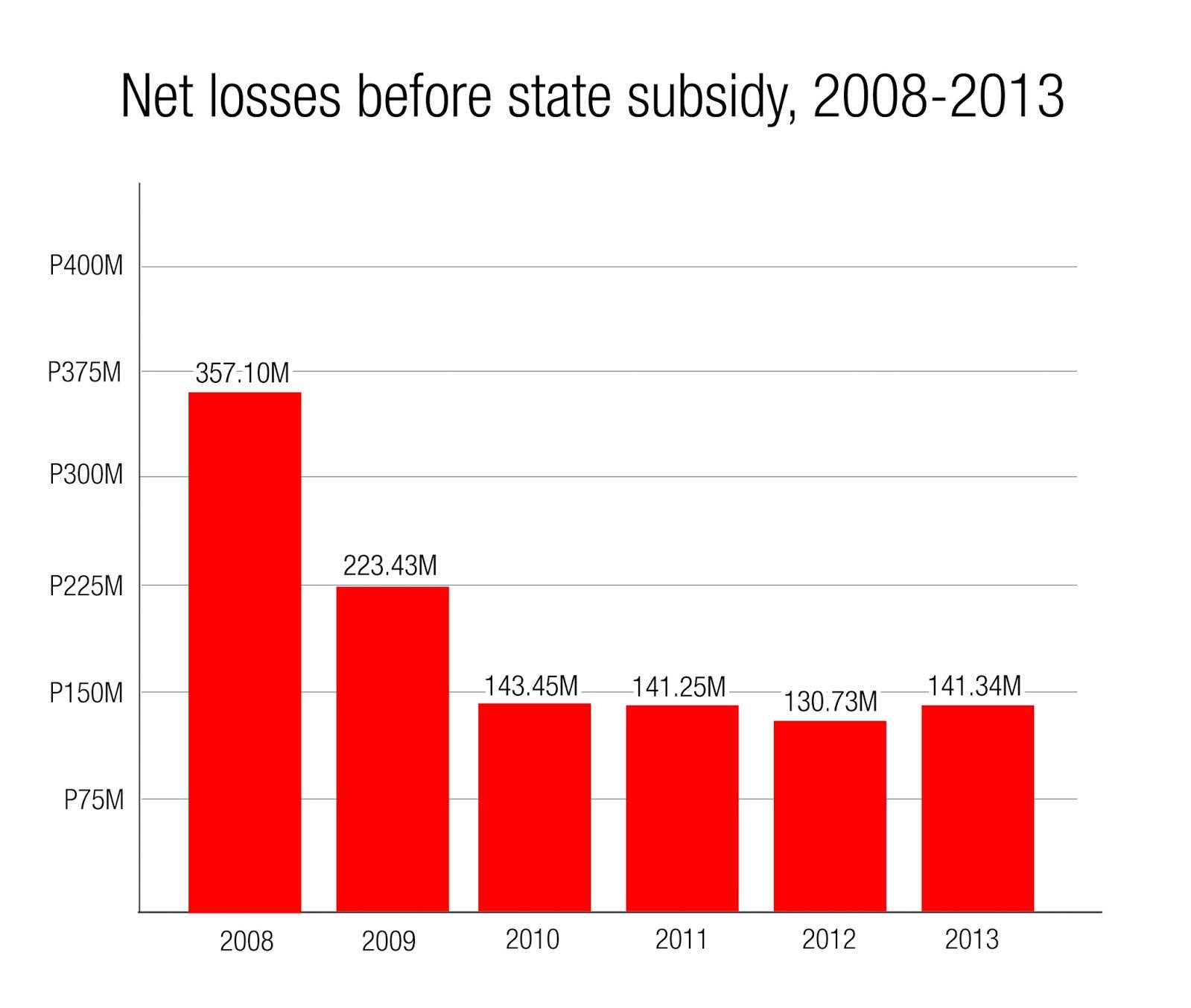
When including erratic state subsidy, the station’s finances has only begun levelling out in 2012.
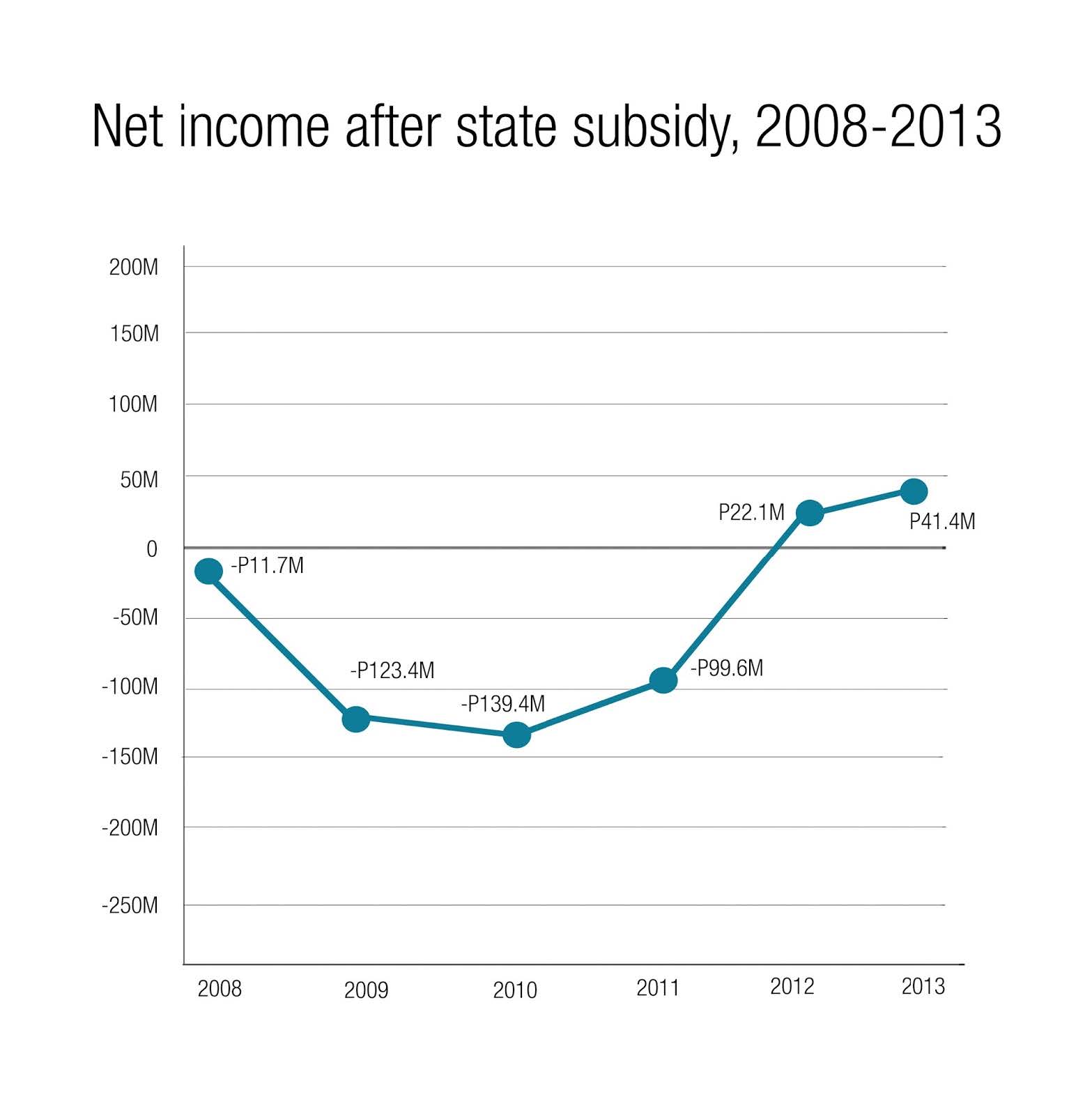
Such financial situation has seen the station’s budget for personal services, or employee salaries, to gradually decrease from P181 million to P118 million in 2013.
“If we hire interpreters again, we cannot rely on our programs’ advertisements alone. We create programs to serve the people, not only to raise revenue,” Nunez said.
A solution to PTV-4’s budget woes may now lie in a Senate bill filed last February which sought to require all free-to-air TV networks, including state television, to include sign language insets during newscasts.
Section 14 of Sen. Paolo “Bam” Aquino’s Senate Bill 2118 states that additional costs that the government may incur, such as PTV-4s’ budget for interpreters, will be sourced from the 1 percent appropriation earmarked for PWD welfare in the national budget.
“It’s important that the government incorporates a budget in every agency, not just PTV, for making services accessible to PWDs because access to information is one way of empowering the people,” Calsena said.
Given different sources of funding, Nunez said he has yet to recommend and present the feasibility of sign language insets during newscasts, but promised to raise it “as soon as possible.”
“It’s about time we do something about this. Kasi kapag hindi namin ginawa ‘yun, parang iniiwan na rin namin ang mga PWDs. Sama-sama dapat sa pag-unlad (If we don’t do anything, it would be a disservice to PWDs. We need to achieve progress together),” Nunez said.
First part: Deafening silence: Private TV stations opt against using sign language insets
(The authors are journalism majors of the University of the Philippines-Diliman. They submitted this story for the journalism seminar class “Reporting on Persons with Disabilities” under VERA Files trustee Yvonne T. Chua. This series of stories coincides with the celebration of the country’s National Disability Prevention and Rehabilitation Week.)
